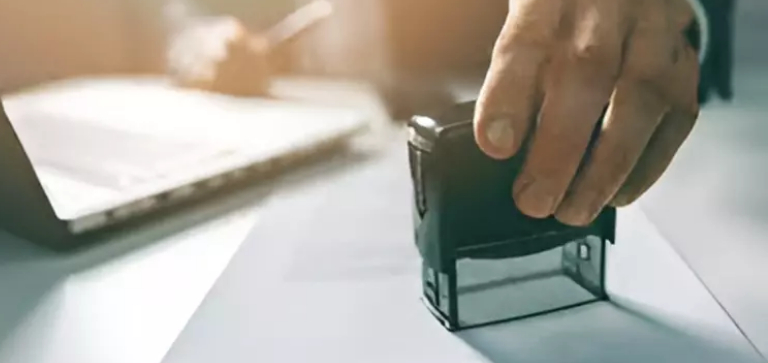Marriage Certificate Attestation: The Key to a Smooth Transition in a New Country

Marriage certificate attestation is indeed an essential step for individuals who are planning to move to a new country with their spouse. It involves the process of verifying and validating the authenticity of a marriage certificate issued in one country before it can be recognised and accepted in another country. This attestation is typically required for various purposes, including immigration, residency applications, employment, and obtaining dependent visas.
Here are some key reasons why marriage certificate attestation is crucial for a smooth transition in a new country:
✔️ Legal Recognition: Attaining legal recognition of your marriage in a new country is vital. By obtaining a marriage certificate attestation, you can be sure that the host country's legal and governmental institutions will recognise and accept your marriage. This recognition is essential for various legal matters, such as applying for visas, availing benefits, or even purchasing property jointly.
✔️ Immigration and Residency Applications: Many countries require attested marriage certificates as part of the immigration and residency application process. The immigration authorities use this document to verify the marital status of the applicants and determine their eligibility for immigration benefits. Without proper attestation, your application may be delayed or rejected, causing unnecessary complications and delays in your transition.
✔️ Dependent Visas and Sponsorship: If you plan to sponsor your spouse for a dependent visa or residency, attested marriage certificates are often a mandatory requirement. The host country's immigration authorities want to ensure the legitimacy of the relationship and the eligibility of the spouse for dependent status. By providing a properly attested marriage certificate, you can fulfil this requirement and facilitate the visa or sponsorship process.
✔️ Social and Financial Benefits: In many countries, married couples are entitled to various social and financial benefits, such as healthcare, insurance, tax benefits, & spousal allowances. These benefits are typically granted based on the legal recognition of the marriage. Attending the marriage certificate attestation process ensures that you can avail yourself of these benefits seamlessly, promoting a smooth transition and better integration into the new country.
✔️ Personal and Social Recognition: Marriage certificate attestation also provides personal and social recognition of your marriage in the host country. It allows you and your spouse to be officially recognised as a married couple, which can be crucial for social interactions, community involvement, and accessing services or programmes designed specifically for couples or families.
To initiate the marriage certificate attestation process, you will generally need to contact the embassy or consulate of the country where you intend to relocate. They will provide you with the necessary guidelines, requirements, and procedures for certificate attestation. The process may involve steps such as notarization, legalisation, and authentication by the respective authorities in your home country and the host country.
It's important to note that the specific requirements and procedures for marriage certificate attestation may vary from country to country. It's advisable to consult with the appropriate authorities or seek professional assistance to ensure you comply with all the necessary steps and documentation required for a smooth transition.

The specific documents required for marriage certificate attestation can vary depending on the country you are applying to and their specific requirements. However, here are some commonly requested documents for marriage certificate attestation:
✔️ Original Marriage Certificate: You will require the original copy of your marriage certificate that your home country's appropriate authority issued. This certificate should bear the seal and signature of the issuing authority.
✔️ Passport Copies: Provide clear and valid copies of your passports, including the main pages and any relevant visas or residency permits.
✔️ Proof of Identity: Some countries may require additional proof of identity, such as national identification cards, driver's licences, or birth certificates of both spouses.
✔️ Notarization: In some circumstances, a notary public or other designated authority in your home country may require you to have your marriage certificate notarized. This step ensures the authenticity of the document.
✔️ Translation: If the marriage certificate is not in the official language of the country where you are applying for attestation, you may need to provide a translated version. The translation should be done by a certified translator and accompanied by an affidavit of accuracy.
✔️ Affidavit of Single Status: Some countries require an affidavit stating that both parties were single and eligible to marry at the time of the marriage. This affidavit may need to be notarized and attested as well.
✔️ Application Form: The embassy or consulate of the nation where you are applying for attestation will most likely provide you with an application form to fill out. This form will require basic information about you, your spouse, and your marriage.
✔️ Fees: There may be applicable fees for the attestation process. Ensure you are aware of the payment methods and fee amounts required by the embassy or consulate.
Marriage certificate attestation is a crucial step for a smooth transition in a new country. It ensures the legal recognition of your marriage and allows you to avail yourself of various benefits, including immigration and residency applications, dependent visas, and social & financial entitlements. By going through the attestation process, you can provide the necessary proof of the authenticity of your marriage certificate, thus facilitating seamless integration into the new country's legal and social systems.
The specific documents required for marriage certificate attestation may vary depending on the country you are applying to. However, typically, you will need the original marriage certificate, passport copies, proof of identity, notarization (if applicable), translation (if necessary), an affidavit of single status (if required), an application form, and payment of applicable fees. It is advisable to consult with the embassy or consulate of the destination country for the most accurate and up-to-date information regarding the required documents.
By ensuring that your marriage certificate is properly attested, you can avoid unnecessary complications, delays, and difficulties during the transition process. It is recommended to start the attestation process well in advance to allow sufficient time for completion & to seek professional assistance if needed. By doing so, you can enhance the likelihood of a smooth and successful transition in your new country.

